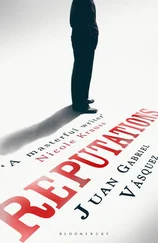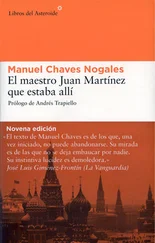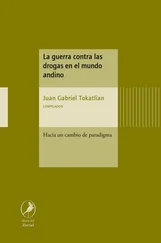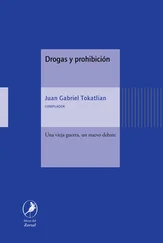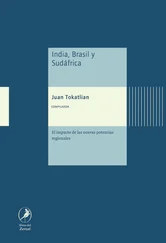Oliveira went out into the hall.
“Agatha?”
He got down four steps before noticing that the bathroom door was closed. Then he heard footsteps on the porch, the panel of the mailbox gave a metallic groan, and a plastic envelope slid through the door. On the other side of the frosted glass, Oliveira saw the postman’s yellow raincoat turning away. He thought he’d go down and collect her mail and then say good morning to Agatha, and as he bent down to pick up the envelope he felt a pleasant pain in his waist, a tug that was also a call. The transparent envelope contained a magazine about horses, but the subscription label covered the title. Seeing Agatha’s name in print for the first time caused a simple and clear emotion. He approached the map on the wall and looked for Iceland. It was a violet-colored country. France, where he still was, was saffron red. Portugal was green, an intense green similar to the color of the van. Abandoning a country was child’s play. Swapping colors and not life. Rootlessness had no color, however. It makes no difference to live in one place or another and being born here or there was an accident. One was a chameleon, countries and people mere scenery.
Maybe Agatha would be grateful for an invitation to spend some days with him; maybe she’d even agree to leave with him right now. Oliveira looked for L’Isle-Adam and his index finger traced the route ahead of him, heading for Clermont-Ferrand and arriving in Perpignan and then Barcelona. The skies would be clearer there and it wouldn’t be so cold. Next he found the Arctic Circle and followed it around the world through the Bering Strait, as a silent homage to Agatha. She was a brave woman. Over the course of the night she’d faced her phantoms and overcome them. It was almost fascinating: Oliveira now remembered the house where Alma had died, and it was as if a new fear had joined his own. All his life he’d lived with fear, with the sensation of menace. It was absurd. His egotism had protected him; he couldn’t feel proud of that. Now he wanted to feel simple emotions. It was a new day and he was hungry.
When he went outside, the dome of clouds had taken on a glassy tone, and the sun was a remote and cold aluminum disk. Perhaps it was the first time that the banal event of a day beginning had given him such satisfaction; it was as if he’d had something to do with it and should be commended. Two doors away from the bakery the air was already smelling of freshly baked bread, a thick and almost visible scent that Oliveira could have cut with his hand. The place was small, but the counter left enough space for a square table and two chairs that looked out from behind the window toward the street. The baker was balder and shorter than he looked before when he was sweeping. His mustache completely hid his lips. The electronic theme music of France 3 came from the back room.
Oliveira pointed to a baguette and asked for two croissants and two pains au chocolat .
“And a carton of orange juice,” he added.
“No cartons,” said the man. “It comes in a bottle, fresh squeezed.”
“A bottle, then.” Oliveira counted the coins in the palm of his hand. “When would you say dawn has broken? Officially, I mean. When there starts to be light, or only when you can see the sun?”
The man considered the question with a grave expression.
“I would say there are two moments. One is dawn, and one is day. Dawn comes before day.”
“So, dawn is before you can see the sun?”
“I’d say so,” the man said.
“Dawn comes as soon as the sky is no longer black.”
“I think so. Is the lady feeling all right?”
“Do you know her?”
The baker lowered his eyes, feigning prudence.
“From seeing her arrive at this hour,” he said. “She never spends the night in her house. But something tells me she’s going to be all right from now on. Of course, I’m not minding anybody else’s business.”
“Of course not,” said Oliveira.
He took the package wrapped in thin paper. A croissant flake floated to the floor like a feather.
When he got back to the house, Oliveira went straight into the kitchen. He looked in three cupboards before finding the glasses. They were tall and blue. The window looked out onto a clothesline. A black bra and an apron similar to the one Agatha had used the previous afternoon hung in the breeze. On the paved ground, beside the wall, a box of detergent. A spoonful of white powder had spilled, and seemed to shine on the dirty ground. Oliveira washed down mouthfuls of croissant with big gulps of orange juice. Then, when he decided to take the other croissant up to Agatha, something extraordinary occurred. Maybe it was a quality of the silence, or the image of the lonely, hanging bra and apron. Oliveira began to walk toward the front hallway — without the croissant in his hand — and his footsteps accelerated. He ran up the stairs two at a time. Oliveira tripped on the penultimate step but didn’t feel his knee smash into the hard edge. He opened the bathroom door without knocking, maybe because he already knew. Naked, Agatha was sleeping in the bathtub; Oliveira found the waterline, level with her shoulders and just covering her breast, and saw her relaxed nipples almost at the same time as he saw the first cloud of blood, supple and round like a balloon coming away from the bottom of a swimming pool.
Oliveira called her and heard the echo of his voice. He sprang to her side and his first instinct was to take her by the wrists, pull her hands out of the water to prevent the gentle and efficient and dreadful emptying of her open veins. The tip of his index finger slipped momentarily into her viscous flesh: Agatha had made too deep a cut. He felt a weak pulse, reluctant but existent, a slight palpitation in her thumb. She was alive, it was still possible to save her. The air floating above the mixture of water and blood had a rusty taste. Oliveira knelt down to get his arms under her body. His shirtsleeves absorbed a pastel red. The cuffs were as heavy as sponges. He found that her body was lighter than he’d imagined and the water, instead of making her slippery, increased the friction between Agatha’s skin and his own. His heart was shuddering at the base of his throat. His own blood pounded in his temples. Oliveira felt a second of intense panic and knew he had never known such a sensation and also knew that nightmares are made of the same stuff as this moment. He wanted to stand up and carry Agatha out of the house and take her to a hospital. He wanted to make a phone call and, while waiting for the men who would arrive among strident sirens, apply a tourniquet over those little-girl bones, though he didn’t know how. He wanted to move, do something for the woman who was dying, anything. But his body would not obey.
He closed his eyes as if praying. A single image illuminated his mind: the tiny shadow of the lizard he’d seen before Agatha started telling him about Grímsey Island, where it was always sunny and people had no pasts or guilt, where life was not a burden. Now he knew that the most diligent team of doctors, the most urgent attention could not save this woman, because her pain was not in the yellow skin of her wrists or the scalpel cuts, and she would still be tormented every night even if they replaced all the blood she had lost today. Oliveira looked at her pale face, mouth half open, her soaked forehead as if in the grip of a violent fever. He didn’t feel resentment, although it now seemed like Agatha was abandoning him; he didn’t see a woman who perhaps, with more time, he could have loved, but a body at rest, redeemed and free, so ostentatious in her liberty that only nudity seemed to suit her. At last she sleeps, thought Oliveira. Love, which he’d so often heard about in abstract terms or tacky images, could be this simple: Agatha fleeing and the will to not prevent her flight.
Читать дальше

